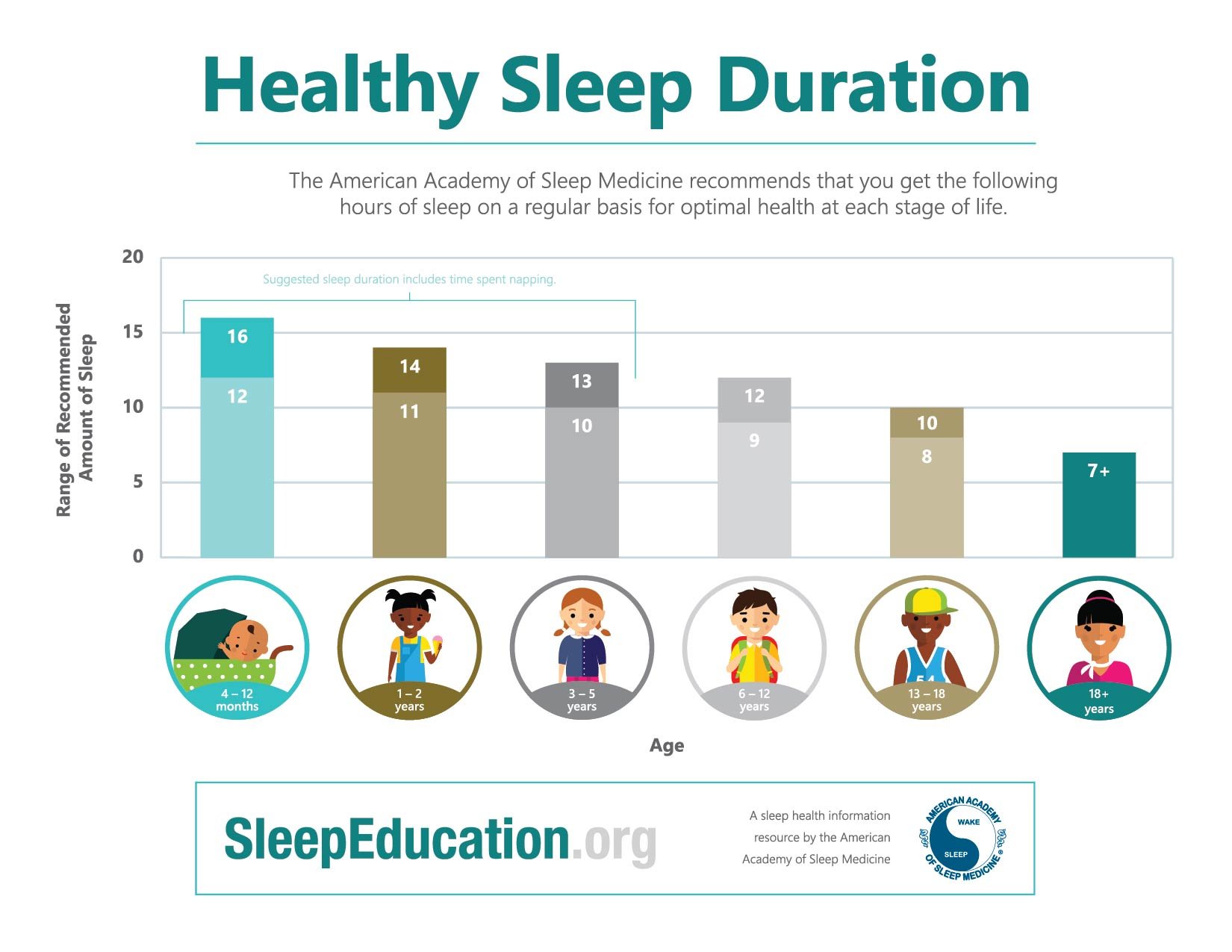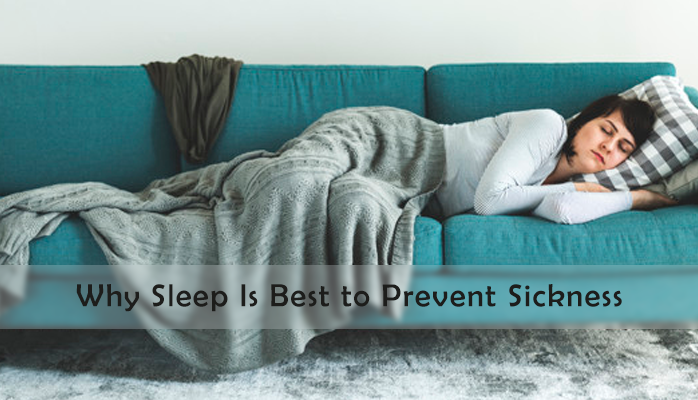Why Sleep Prevents Sickness
Sleep loss impacts your immune response and, in turn, your immune system alters your sleep. Sleep is one of your primary defenses against getting sick, as it helps ensure that your immune response is optimal and effective.
The relationship between sleep and the immune system are molecules called cytokines. Cytokines act as signaling molecules in the immune system and the brain. Sleep loss decreases your body’s production of protective cytokines.
During illness, increased levels of pro-inflammatory cytokines correspond with increased fatigue, which is why you feel tired when you are sick – it’s your body’s way of telling you to sleep more and recover quicker from your illness.
What Types of Sickness Does Sleep Prevent
Sleep prevents illness that we regularly deal with, primarily the common cold and flu.
How Much Sleep Should You Get
Here is a graphic of the below information, showing how much sleep you should get
Below are appropriate ranges of sleep for each age group, which will help prevent sickness [Sleep Foundation]. If you are sick, you will likely need more sleep to recover.
- Age 0-4 months
- 11-19 hours; Recommended 14-17 hours
- Age 4-12 months
- 10-18 hours; Recommended 12-16 hours
- Age 1-3 years
- 9-16 hours; Recommended 11-14 hours
- Age 3-5 years
- 8-14 hours; Recommended 10-13 hours
- Age 6-13 years
- 7-12 hours; Recommended 9-12 hours
- Age 13-18 years
- 7-11 hours; Recommended 8-10 hours
- Age 18+
- 6-10 hours; Recommended 7-9 hours
How to Make Up Sleep Debt
The word debt is misleading because repaying your sleep debt doesn’t work like repaying a money debt. You can’t just pay it all back like a loan in one or two lump sums.
You repay your sleep debt by establishing a healthy pattern of sleep over a period of time, such as a week or more, such as:
- Get extra sleep on the weekend
- Get enough or a little bit of extra sleep every day the following week
In other words, getting over sleep deprivation involves consistent, restful sleep.
Here’s an example of how this DOESN’T work:
- You require 7 hours of sleep to get full rest
- Monday through Friday you get 6 hours of sleep per night, for an effective “debt” of 5 hours
- On Friday night and Saturday night, you sleep an extra few hours
Sleep studies show that getting one or two long nights of sleep do not remove the effects of sleep deprivation.
Sleep Disorders That Contribute to Sickness
There are many disorders that cause chronic sleep deprivation, including:
- Sleep apnea
- Insomnia
- Restless leg syndrome
- Circadian rhythm disorders
- Parasomnias
The primary symptom of any sleep disorder is sleep deprivation. This resulting sleep deprivation makes you much more likely to get sick more and take longer to recover from sickness.
Sleep disorders are especially insidious if you are dealing with chronic or long-term illness that already leaves you with a weak or compromised immune system, and it is imperative in such cases that you get a lot of sleep to maintain energy and quality of life.
If you live in Alaska and are dealing with chronic sleep deprivation or chronic sickness that may be sleep related, please take with free online sleep test and get connected with one of our sleep health professionals.


